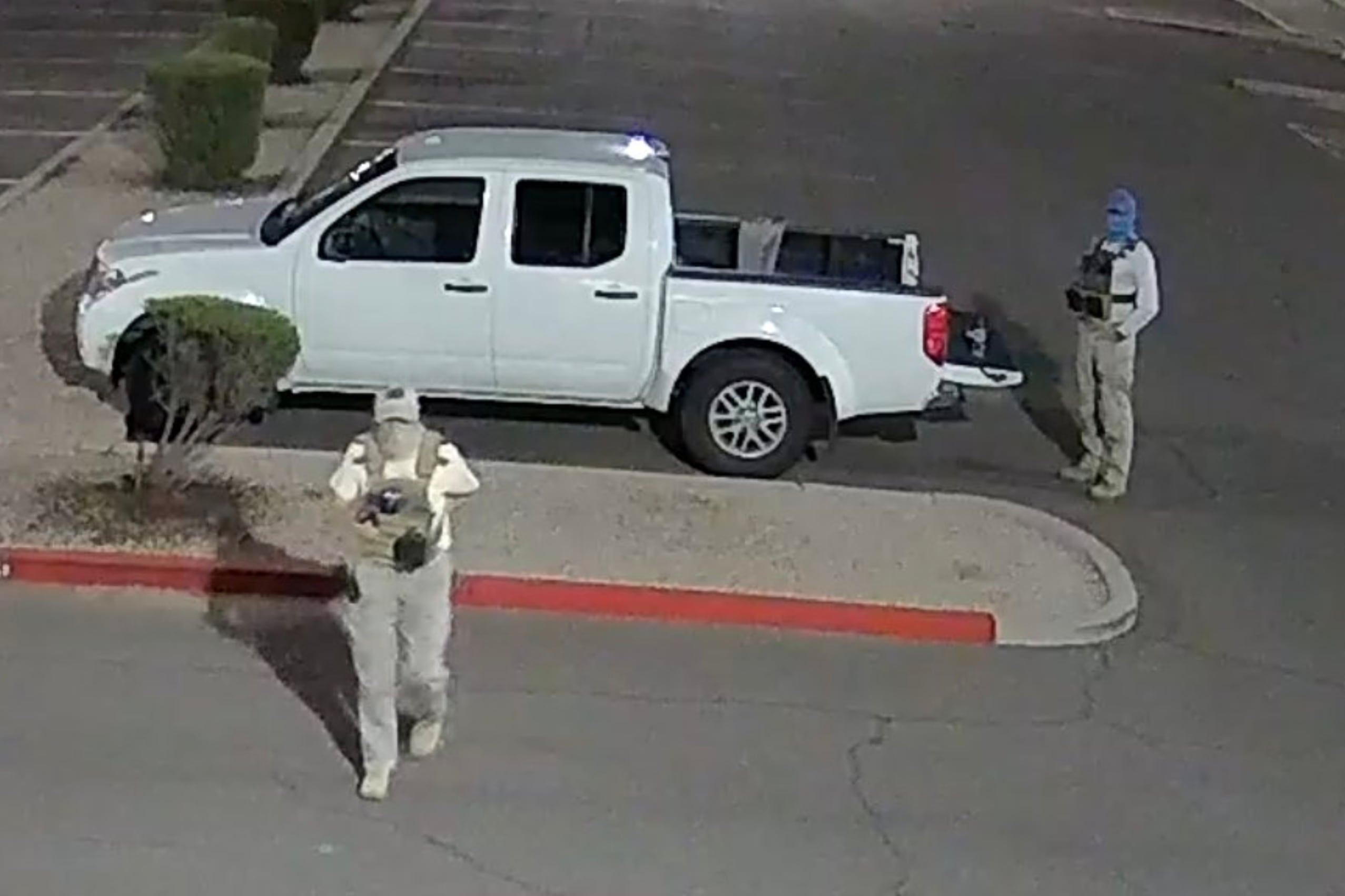Votebeat is a nonprofit news organization reporting on voting access and election administration across the U.S. Sign up for Votebeat Arizona’s free newsletter here.
Arizona’s rules aimed at preventing specific types of voter intimidation and harassment near polling places and drop boxes are too broad and violate free speech rights, a Maricopa County judge ruled.
The rules, some of which have been in place for years, prohibit anyone from following, photographing, videotaping, or yelling at voters outside drop boxes or polling places, along with other activities that Secretary of State Adrian Fontes had declared were intimidating. Tuesday’s injunction from Maricopa County Superior Court Judge Jennifer Ryan-Touhill temporarily prohibits Arizona officials from enforcing the rules, until the court can issue a final ruling in the matter.
The ruling comes just two months before early voting begins for the presidential election, and as Republican groups pledge to watch over the polls. The Republican National Committee, for example, launched a “Protect the Vote” tour in June to recruit poll watchers, poll workers, and lawyers to “ensure it is easy to vote and hard to cheat.”
Fontes’s office said in a statement Tuesday that it will appeal the order.
“While we respect the court’s decision to halt certain speech restrictions, implementing a preliminary injunction for the general election would be too far-reaching,” the statement said.
Ryan-Touhill wrote that the secretary of state can restrict certain activity in the immediate area around a polling place, such as telling someone whom to vote for or threatening someone. But she wrote that many of the other prohibitions Fontes listed in the new Elections Procedures Manual — which was approved in December by Gov. Katie Hobbs and Attorney General Kris Mayes — violate free-speech rights, even beyond the 75-foot electioneering boundary around a polling place.
“What, for example, constitutes a person communicating about voter fraud in a harassing manner?” she wrote. “Or, for that matter, ‘posting’ a sign in an intimidating manner? How does a person either do this behavior — whatever it means — or avoid it? And what content printed on a t-shirt might be offensive or harassing to one and not another? What if the t-shirt says, “‘I have a bomb and I intend to vote!’ Where does the Secretary draw the line?”
State law already makes it unlawful for a person to threaten or intimidate a person in a way that would cause a person to refrain from voting, Ryan-Touhill wrote. But Fontes’s election manual defines intimidation and harassment in a way that state law doesn’t, she wrote.
Fontes’s office clarified that even with the order, it still is illegal to campaign, take photos, and intimidate voters within the 75-foot line.
Many of the voter intimidation rules that the judge called problematic, such as those on yelling at voters, were in the state’s election procedures manual before Fontes’ update. The 2019 manual, for example, prohibited yelling at or confronting voters in an intimidating manner as they went to vote.
In December, Fontes added new rules in response to conservative groups that were monitoring drop boxes during the 2022 midterm election in search of proof of fraud. More than a dozen voters filed complaints of intimidation, stating that the groups were taking photos and videos of them and confronting them. In one instance, drop box watchers were spotted with guns and body armor.
As Fontes’s office drafted the manual, it also added rules prohibiting taking photos and videos of voters, impersonating a law enforcement officer, or otherwise wearing clothing or uniforms intended to intimidate voters.
The new draft of the manual faced an immediate backlash from Republicans in the state, who argued that several parts contradicted state law or were unconstitutional.
Republican groups filed three separate lawsuits. The order on Tuesday came in a case filed by the Arizona Free Enterprise Club, the America First Policy Institute, and a resident.
Scot Mussi, president and executive director of the Arizona Free Enterprise Club, told the judge in a hearing last week that the restrictions on activity outside of polling places were “vague and ambiguous,” and he worried that the organization’s workers or volunteers would be prosecuted for activity they did not see as threatening, according to the judge’s order.
“We use the wrong word on a [flyer], they might think that it’s threatening or harassing and would give an election official the ability to force us to have to leave or can lead to other consequences,” Mussi told the judge, according to her order.
Jen Fifield is a reporter for Votebeat based in Arizona. Contact Jen at jfifield@votebeat.org.





